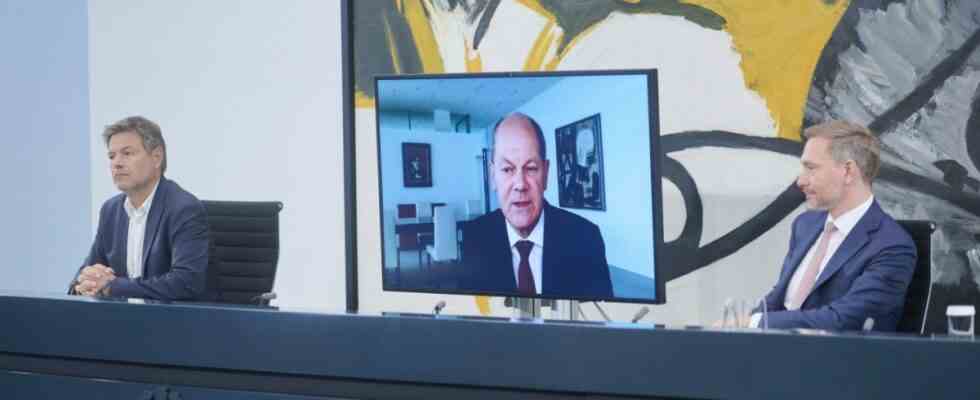The federal government is putting up a “large protective shield” against rising energy costs, as Chancellor Olaf Scholz (SPD) announced in Berlin on Thursday. The traffic light coalition has agreed to provide up to 200 billion euros for this. To this end, Berlin is taking out new loans, which will go to the Economic Stabilization Fund this year and are therefore in addition to the regular federal budget. The money can then be spent until spring 2024. The amount is intended to cushion the most severe consequences for consumers and companies. “The prices have to go down,” said Scholz.
In addition to an electricity price brake at European level, a gas price brake is now to be introduced as quickly as possible. It is intended to cap prices for at least part of consumption in order to protect private households and companies from being overburdened. A commission of experts already set up by the federal government is to work out the precise structure. The gas importers threatened by bankruptcy are to be supported by the state; the largest of them, Uniper, is already being nationalized.
At a press conference with Economics Minister Robert Habeck (Greens) and Finance Minister Christian Lindner (FDP), to which he was connected via video because of his corona infection, Scholz emphasized that Russia is using its energy supplies internationally as a political weapon against states that are supporting Ukraine. At the latest after the “destruction” of the gas pipelines in the Baltic Sea, it was clear that Russia would no longer be supplying gas for the foreseeable future.
The federal government overturned the planned gas surcharge, which was to come into force on October 1st. It would have led to a further rise in consumer prices. The reduction in value added tax for gas from 19 percent to the reduced rate of seven percent, which was actually planned as compensation, is still coming. District heating customers should also benefit from this, announced Habeck. Additional capacities for both electricity and heat generation should also help to lower prices.
Lindner emphasized that the federal budget for 2023 should comply with the debt brake from the Basic Law. With the defense shield, the federal government is separating expenditure to combat the crisis from regular budget management. The Economic Stabilization Fund is an instrument that governments have already used in other crises. To combat the consequences of the corona pandemic, it was filled with 500 billion euros. The fund is working specifically against the crisis and will not fuel inflation, Lindner announced.
Opposition leader Friedrich Merz (CDU) announced that he would “constructively support” the project. It remains completely unclear how the amount of 200 billion was calculated, but also how price brakes should be designed. The Union will only decide on approval when it knows the legal texts. The traffic light coalition has now taken on 360 billion new debts in shadow budgets this year alone.

